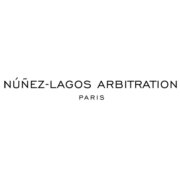Best Energy, Environment & ESG Lawyers in France
Share your needs with us, get contacted by law firms.
Free. Takes 2 min.
Or refine your search by selecting a city:
List of the best lawyers in France
About Energy, Environment & ESG Law in France
Energy, Environment and ESG (Environmental, Social, and Governance) law in France covers a broad range of regulations and policies aimed at promoting sustainable development, combating climate change, and ensuring responsible business practices. French law has evolved in response to global environmental goals, European Union directives, and domestic priorities, particularly in the areas of renewable energy, carbon reduction, biodiversity protection, pollution prevention, and corporate social responsibility. The framework is designed to support both individuals and businesses as they navigate the transition to a greener economy and comply with strict legal requirements for environmental protection and sustainable operations.
Why You May Need a Lawyer
There are many circumstances in which individuals or organizations may require legal assistance in the field of Energy, Environment, and ESG in France. Common situations include:
- Obtaining permits for energy or infrastructure projects
- Navigating compliance with environmental protection standards and waste management regulations
- Understanding and applying regulations on carbon emissions and reporting obligations
- Handling disputes related to pollution, contaminated land, or nuisance claims
- Advising on renewable energy investments or partnerships
- Responding to investigations or enforcement actions from regulatory authorities
- Drafting or reviewing ESG reporting and corporate responsibility policies
- Adapting to new regulations affecting product lifecycle, consumer safety, or supply chain sustainability
A lawyer specializing in these fields can help clients understand their rights and obligations, avoid costly mistakes, and ensure compliance with complex national and European rules.
Local Laws Overview
French Energy, Environment, and ESG laws are shaped by both national legislation and European Union policies. Key elements include:
- Environmental Code: The core legal text consolidating environmental regulations, including pollution prevention, waste management, water and air quality, and protection of natural habitats.
- Energy Transition Law (LTECV): This law sets ambitious targets for renewable energy, energy efficiency, and the reduction of greenhouse gas emissions.
- Climate and Resilience Law (2021): Focuses on adapting the economy to climate change, including support for low-carbon industries and climate risk disclosure.
- EU ESG Directives: France is implementing EU directives that require large companies to report on sustainability and integrate ESG considerations into business strategies.
- Strict Liability Rules: Polluters are often strictly liable for environmental harm, which means they can be held responsible even without proven fault.
- Participation and Consultation: Laws promote public participation and stakeholder consultation in decisions affecting the environment, especially for major projects.
Local authorities also play a major role in enforcing these laws and issuing permits for development or industrial activity.
Frequently Asked Questions
What is ESG and why is it important in France?
ESG refers to Environmental, Social, and Governance criteria that businesses use to measure their sustainability and ethical impact. In France, ESG is increasingly important for regulatory compliance, investor confidence, and market reputation, especially with new reporting requirements for larger companies.
Are there specific permits required for renewable energy projects?
Yes, renewable energy projects typically require multiple permits, including environmental permits, construction authorizations, grid connection agreements, and sometimes impact assessments depending on the size and location of the project.
What penalties exist for violating environmental regulations?
Penalties can include substantial fines, mandatory remediation measures, criminal charges, and in some cases, the suspension or shutdown of activities. French authorities take environmental offenses seriously, particularly repeat or negligent violations.
Do individuals have rights to challenge environmentally harmful projects?
Yes, individuals and organizations can challenge decisions or projects that may harm the environment. Public participation is encouraged, and affected parties may seek judicial review or file complaints with administrative authorities.
How does France regulate carbon emissions?
France is part of the EU Emissions Trading System and also sets national targets for emissions reduction. Businesses in specific sectors must monitor and report emissions and may need to purchase carbon allowances or implement reduction measures to stay compliant.
Are companies required to publish ESG reports?
Large companies and certain listed entities are required to disclose non-financial information, including ESG topics, in their annual reports. Smaller companies may not be legally obligated but are often encouraged to adopt ESG reporting for competitiveness and transparency.
What should I do if I am accused of causing pollution?
It is important to seek legal advice immediately. You may be required to cooperate with regulatory authorities, conduct environmental assessments, and take remedial actions. Prompt, professional guidance minimizes risks and potential penalties.
Can environmental agencies inspect my business without notice?
Yes, regulatory authorities have broad powers to conduct investigations and site inspections, sometimes without prior notice, to ensure compliance with environmental laws and regulations.
What is the role of local authorities in environmental regulation?
Local authorities are responsible for issuing certain permits, enforcing regulations, and overseeing local environmental protection. They are often the first point of contact for inquiries and compliance checks.
How can I ensure my project complies with French environmental law?
You should consult with legal professionals and environmental consultants as early as possible. Proper planning, obtaining required permits, conducting thorough impact assessments, and maintaining clear documentation are essential to compliance.
Additional Resources
If you need more information or assistance, consider consulting the following resources and organizations:
- Ministry for the Ecological Transition (Ministère de la Transition Écologique) - the main government body overseeing energy and environment policies
- French Agency for Ecological Transition (ADEME) - provides guidance on energy efficiency and reducing environmental impact
- Autorité des Marchés Financiers (AMF) - regulates ESG reporting for listed companies
- Local Chambers of Commerce and Industry - offer information on legal obligations for businesses
- Environmental NGOs such as France Nature Environnement
Next Steps
If you think you need legal advice or representation in Energy, Environment, or ESG matters in France, it is important to:
- Gather any relevant documents and information about your project or issue
- Identify your specific legal questions or concerns
- Contact a lawyer who specializes in environmental, energy, or ESG law
- Consult with professionals as early as possible in your planning process to anticipate and address potential legal risks
- Stay informed about updates in legislation and compliance requirements
Professional guidance can help you navigate complex regulations, reduce risks, and achieve your business or environmental goals while operating within the law.
Lawzana helps you find the best lawyers and law firms in France through a curated and pre-screened list of qualified legal professionals. Our platform offers rankings and detailed profiles of attorneys and law firms, allowing you to compare based on practice areas, including Energy, Environment & ESG, experience, and client feedback.
Each profile includes a description of the firm's areas of practice, client reviews, team members and partners, year of establishment, spoken languages, office locations, contact information, social media presence, and any published articles or resources. Most firms on our platform speak English and are experienced in both local and international legal matters.
Get a quote from top-rated law firms in France — quickly, securely, and without unnecessary hassle.
Disclaimer:
The information provided on this page is for general informational purposes only and does not constitute legal advice. While we strive to ensure the accuracy and relevance of the content, legal information may change over time, and interpretations of the law can vary. You should always consult with a qualified legal professional for advice specific to your situation.
We disclaim all liability for actions taken or not taken based on the content of this page. If you believe any information is incorrect or outdated, please contact us, and we will review and update it where appropriate.
Browse energy, environment & esg law firms by service in France
France Attorneys in related practice areas.
Browse energy, environment & esg law firms by city in France
Refine your search by selecting a city.

















